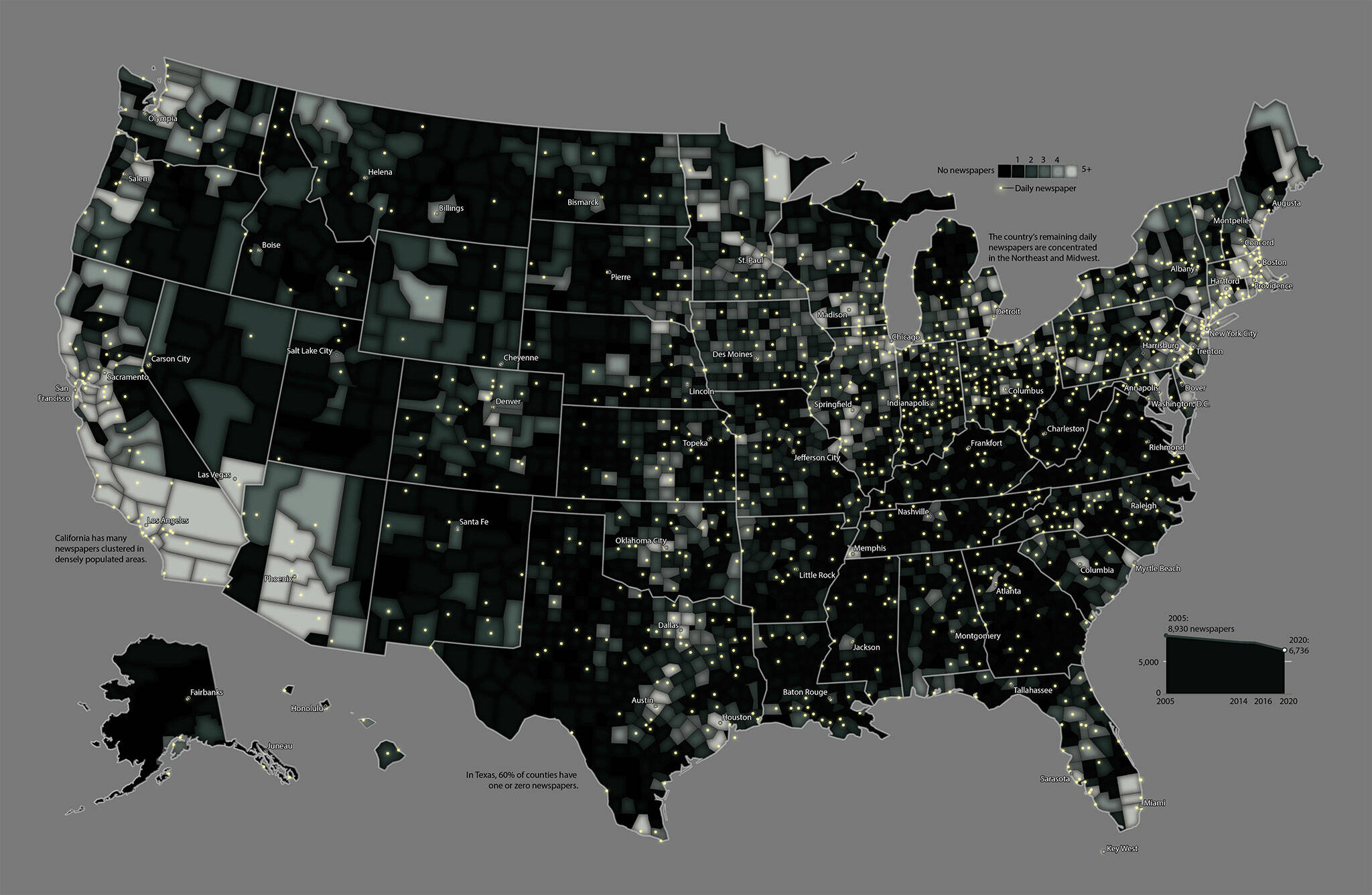By The Herald Editorial Board
Hopes that Congress — in the last few days of this session — might pass legislation that could provide fair compensation and a needed boost of financial support to local newspapers and other media outlets now appear lost.
Cowed by a cynical threat made Tuesday by Facebook’s parent Meta that it would remove all U.S. news content from Facebook if Congress adopted the Journalism Competition and Preservation Act as part of the must-pass defense spending package, the JCPA’s provisions were cut from the spending bill a day later.
At a time when newspapers of all sizes across the country are laying off staff — when not closing papers altogether — newspapers and other media outlets are making money; it’s just that a good chunk of that money isn’t going to the print and broadcast operations that pay reporters, photographers and others who are doing the work of journalism.
That money, instead, is going to social media giants — namely Meta and Google’s parent, Alphabet — through advertising they sell by linking to the news stories that others have produced.
A study from 2019, published by the News Media Alliance, a journalism advocacy group, found that Google alone made an estimated $4.7 billion in revenue in 2018 by “crawling and scraping news publishers’ content; without paying the publishers for that use.”
The JCPA would have addressed that unpaid use by temporarily suspending antitrust laws and allowing news publishers and broadcasters to collectively bargain with social media firms for fair compensation — call it a subscription — for use of news content that they publish on their sites.
Not just the major news media outlets, but local newspapers and others would have benefited. Any local news outlet — print or broadcast — that employs reporters and produces news would have been able to join a negotiating team. To ensure the money goes toward producing journalism, any payments would be distributed 65 percent based on the number of journalists working 20 hours or more at a publication; with the remaining 35 percent based on the “impressions” or clicks for each platform, according to an earlier report by Poynter.
A leading sponsor for the bill, Sen. Amy Klobuchar, D-Minn., noted that the need for a lifeline to local journalism remains, even after the JCPA’s provisions were removed from the defense bill, which at the start of the week had looked to have provided a path toward passage by Democrats and Republicans alike critical of the overreach of social media.
“Continually allowing the big tech companies to dominate policy decisions in Washington is no longer a viable option when it comes to news compensation, consumer and privacy rights, or the online marketplace.” Klobuchar said in a statement Wednesday after the defense bill was released minus the JCPA’s provisions, The Washington Post reported. “We must get this done.”
That some in Congress may have been spooked by Meta’s threat — a bluff, really — adds insult to the loss. Anything bringing in the kind of revenue that news content provides to Facebook and Google was not going to be pulled down; there aren’t enough cat videos in the world to make up the difference in revenue for Facebook.
The News Media Alliance, in a blog post, called the threat “undemocratic and unbecoming,” noting that identical — and unfulfilled — threats were made prior to passage of a similar law in Australia that compensates the producers of news. In the law’s first year, it returned $140 million to newspapers and other media, a figure that in the U.S. would translate into billions of dollars.
Legislation remains pending before Canada’s Parliament, which has heard the same bluff. There, a collectively bargained agreement would generate an estimated $242 million yearly for Canadian news businesses.
Meta, in its threat, argued that the producers of news are already compensated because they gain eyes and potential customers through the links and exposure that Facebook and Google provide. Sorry, but that sounds an awful lot like the rationalization of “social media influencers” who scam a restaurant meal or a hotel stay by promising a good review.
“Creating a cartel-like entity which requires one private company to subsidize other private entities is a terrible precedent for all American businesses,” Meta said in its Tuesday statement.
Again, who’s subsidizing whom?
With the JCPA now shelved, the issue of fair compensation and support for a crucial source of local news and information across the country does not vanish; even as America’s “news deserts” continue their slow expansion. With each passing week another two U.S. newspapers close, according to Northwestern University’s Medill School.
The harm is clear: “As local news disappears, bad things happen,” Margaret Sullivan, the former media columnist for The Washington Post, wrote earlier this year. “Voter participation declines. Corruption, in business and government, finds more fertile ground. And false information spreads wildly.”
Until Congress acts — or the social media giants realize the folly of bleeding dry a lucrative source of news that supports their advertising revenue — the job of supporting local newspapers is left to those living in the communities now served by those newspapers. If Google and Facebook won’t subscribe, you can.
Talk to us
> Give us your news tips.
> Send us a letter to the editor.
> More Herald contact information.

























